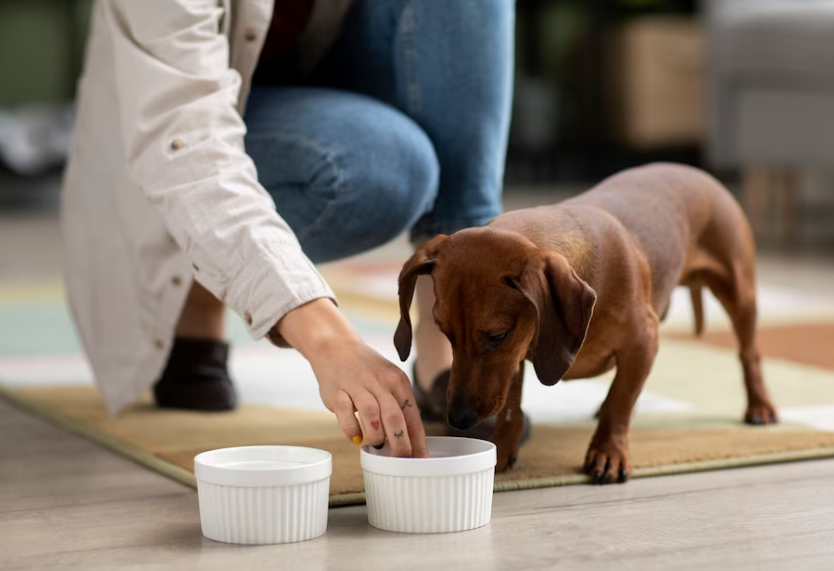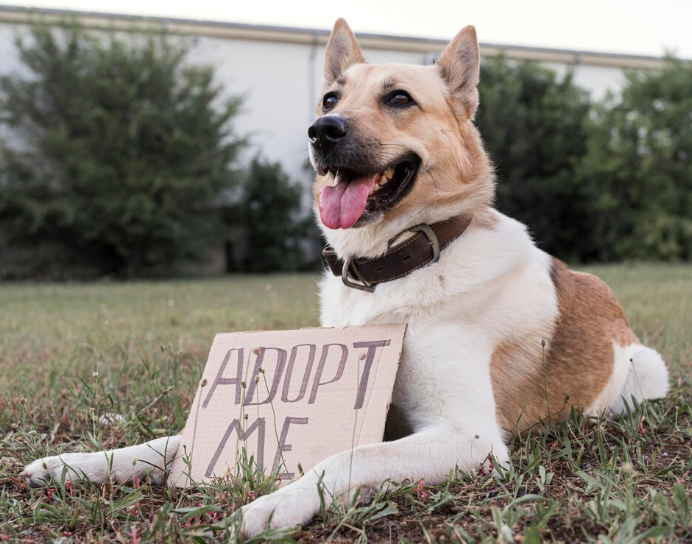
Giving a kiss- what better way for your paw friend to show you their affection and love? We, of course, look with eagerness to cuddle with our beloved dogs, pet them, praise them, and show them our love and care in return. A perfect picture, that nothing can ruin! Almost…
Most of you probably know the unpleasant feeling that occurs when you smell a dog’s bad breath. Occasionally having a bad breath is common in our paw friends and in most cases there is nothing to worry about.
Luckily, there are many remedies for bad breath, which are totally safe for dogs. Today we will let you know how to use one of the most popular (and delicious) foods, namely-yogurt, as a remedy for bad breath.

What Can Cause a Dog to Have a Bad Breath?
Just like with humans, bad breath can be caused by various factors. We will list below some of the most common ones:
Poor Oral Hygiene and Oral Infections
If you do not take care of your dog’s dental hygiene, by brushing their teeth, feeding them dental sticks, and bringing them for regular veterinarian checkups, plaque, and tartar are likely to build, which can cause bacteria to grow. Bacteria in the oral cavity are a common reason for bad breath.
Bad dental hygiene can lead to oral infections, such as gum disease or a tooth abscess, which can also cause bad breath in dogs.
Some owners tend to neglect the dental hygiene of their pets, without realizing that a dental issue can cause more serious health conditions in the future. We advise you to be a responsible and caring dog owner.
Diet
Your dog’s food affects their breath. Based on the ingredients some dog foods may have a strong odor.
For instance, canned food has gone through processing to preserve it, which can cause it to have a strong smell. Dogs of course adore this smell and prefer wet food over dry food.
Due to the fish oils and proteins, fish-based food also typically has a strong odor.
Low-quality dry food- some food brands opt for strong additives, coloration, and the use of chemical substances to cover the real bad odor of the ingredients. We highly recommend that you always check the ingredients on the label prior to buying dog food. Low-quality food can not only irritate your dog’s digestive system but also cause them bad breath. The more natural the ingredients in your dog’s food are, the healthier your paw friend will be!
Last, but not least, let’s talk about our dogs’ habits. Some of you will agree that scavenging for food can be an issue, which is hard to address. If your canine tends to rummage through the trash and eat garbage, when unsupervised, you should not wonder why they have bad breath. This type of behavior can be caused by different reasons such as boredom, anxiety, improper diet, lack of exercise, etc.
Health Conditions
Some underlying health conditions can also be responsible for your dog’s bad breath, including liver and kidney disease, diabetes, periodontal disease, and stomach issues. If your dog is dealing with a health issue, there are usually further symptoms present, besides bad breath, such as diarrhea, vomiting, and lack of energy.
More serious health issues are related to throat and mouth tumors, which can produce an unpleasant odor.
If you are suspecting that your paw friend may have an underlying health condition, you should consult with a veterinarian as soon as possible. Do not wait for the problem to worsen and become untreatable.
Yogurt - Benefits for Your Dog’s Health
Yogurt is produced by bacterial fermentation of milk. The live and active cultures in yogurt are known as probiotics, and they can help improve your dog's bowel movement by promoting the growth of beneficial bacteria in their digestive system. This can help reduce the amount of harmful bacteria in your dog's mouth, which can cause bad breath.
Yogurt also contains calcium and protein which can boost your dog's immune system, improve their breath, fortify their bones, and positively affect their heart and nervous system.
Helping with an upset stomach, keeping their skin and coat neat and healthy, and reducing the risk of cancer and other diseases, are further benefits of this delicious food.
If your paw friend is dealing with ear infections or constant itchiness, yogurt may help relieve their symptoms.

Yogurt - Potential Issues
Avoid products that contain a lot of coloration, additives, preservatives, and artificial sweeteners, especially xylitol. Opt for plain yogurt if you want to ensure that your dog will stay healthy. Dogs cannot digest sugar the way humans can and xylitol is extremely toxic for them.
It is also recommended that you opt for a brand that offers yogurt rich in live cultures and low in lactose. Many dogs are lactose-intolerant, so the lower the lactose content, the better. Lactose can cause your dog to have diarrhea, vomiting, and gas. If you notice that yogurt consumption causes digestive issues in your dog, you should exclude it from their diet immediately.
Fat
content is another important factor you should consider when feeding
your dog yogurt. Some dairy products are
high in fat, which can not only upset your canine’s stomach
but also lead to weight gain.
Tips on How to Properly Incorporate Yogurt into Your Dog’s Diet
Whenever you decide to implement new food in your dog’s regular food, you should always start with small amounts.
This will help you make a smooth transition, prevent your dog from getting an upset stomach and also notice how your dog’s body reacts to the new food.
Always consult with a veterinarian prior to changing your dog’s diet, especially if you intend to add human food to it. They will let you know if these changes will be beneficial for your paw friend, or it will be the exact opposite. Your dog’s veterinarian will give you accurate information and advice on how to feed your paw family member properly depending on their age, health, breed, and lifestyle.
Use yogurt as a treat. You can give your dog small amounts of fresh yogurt or put it in ice cube trays. Since yogurt is not a natural part of your dog’s diet, you should provide it to them rather in the form of treats instead of making it a part of their regular food. For instance, you can give them a yogurt treat when they are well-mannered or show a wanted behavior.
You can also mix yogurt with your dog’s kibble. As already mentioned, please make sure that the yogurt is plain and free of additives, coloration, and artificial sweeteners. Adding some yogurt to your dog’s kibble will add nutrition to their diet, will make the kibble higher in moisture, and will also help them have good breath.

Another option to feed your dog yogurt is to mix it with fresh fruits and vegetables (safe for dogs). Be very careful when feeding your dog human food, and always make sure that it is safe for dogs first. Small amounts of blueberries, bananas, apples, and watermelons, can complement the yogurt very well.
Yogurt and coconut oil-what a combo, isn’t it? Coconut oil is known for its antibacterial properties and when mixed with yogurt it can help remove the bacteria that causes bad breath in dogs. Virgin coconut oil is known as most beneficial for dogs, so you may want to opt for it.
You can mix plain yogurt with coconut oil, which is known for its antibacterial properties. This can help kill the bacteria in your dog's mouth that cause bad breath. Just be sure to use virgin coconut oil, as it's the most beneficial for your dog's health.
Yogurt can be used as a great home remedy for your dog’s bad breath. However, just like other types of human food, you should be cautious when you decide to incorporate new types of food into your dog’s diet.
Always consult with a veterinarian in advance, and monitor your dog’s body reaction to the new food. You should not overfeed your paw friend if you want to make sure that they are healthy and safe.
Also, please keep in mind that despite the benefits that yogurt consumption can have for your dog’s health and breath, it can not substitute a healthy diet, dental hygiene, and regular veterinarian checkups.












